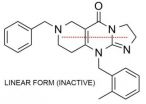(Press-News.org) SAN ANTONIO (May 19, 2014) — Hispanics are the fastest-growing demographic group in the United States, and they suffer from major health disparities, including higher rates of cancers of the cervix, stomach and liver.
However, their enrollment levels in cancer clinical trials seeking to cure these problems is abysmally low: 3.9 percent.
In a paper published today in the Journal of Clinical Oncology, three physicians from The University of Texas Health Science Center at San Antonio analyzed Hispanic accrual rates to randomized clinical trials, and in response to the results, are issuing a call to arms to other cancer researchers to improve their recruitment of Hispanic patients.
"Fundamentally, in the most recent published cancer clinical trials, either the number and proportion of Hispanics are not reported or are far below their actual representation in the national population," said Ian M. Thompson Jr., M.D., director of the Health Science Center's Cancer Therapy & Research Center.
"We have a major responsibility to ensure adequate representation," Dr. Thompson said. "How else will we know how best to treat our patients, and how else are we going to reduce the health disparities in this population?"
Dr. Thompson, Anand Karnad, M.D., CTRC chief of the division of hematology/oncology at the CTRC, and Alberto Parra, M.D., internal medicine resident at the UT Health Science Center, examined clinical trial participation.
Fifty-eight percent of San Antonio residents are Hispanic, with 68 percent in the South Texas region as a whole. As the National Cancer Institute-designated cancer center serving South Texas, the CTRC has a strategic focus on improving health care in the region by working to increase Hispanic participation in cancer clinical trials.
In 2012, 45 percent of the 822 patients enrolled onto the clinical trials offered at CTRC were Hispanic. The CTRC achieved this by studying ways to reduce barriers that might be unique to Hispanic patients, developing a minority recruitment toolbox with bilingual forms, and creating a coordinator of minority programs who is bilingual.
"For institutions like ours that serve a 'minority-majority' population, it's a major responsibility for us to ensure adequate representation so that we can tell our patients how they can best be treated and how we can reduce the disparities of this rapidly-growing population," Dr. Thompson said.
INFORMATION:
For current news from the UT Health Science Center, please visit our news release website or follow us on Twitter @uthscsa.
The Cancer Therapy & Research Center (CTRC) at The University of Texas Health Science Center at San Antonio is one of the elite academic cancer centers in the country to be named a National Cancer Institute (NCI) Designated Cancer Center, and is one of only four in Texas. A leader in developing new drugs to treat cancer, the CTRC Institute for Drug Development (IDD) conducts one of the largest oncology Phase I clinical drug programs in the world, and participates in development of cancer drugs approved by the U.S. Food & Drug Administration. For more information, visit http://www.ctrc.net.
A call to arms in cancer research
Recruiting more Hispanics to cancer clinical trials crucial to reducing health disparities
2014-05-19
ELSE PRESS RELEASES FROM THIS DATE:
Breastfeeding initiation and success is impacted by diabetes status of mother
2014-05-19
Women diagnosed with diabetes before or during pregnancy are less likely to initiate and continue breastfeeding their newborns than women without diabetes, a new study suggests. Led by clinician-scientists in The Research Institute at Nationwide Children's Hospital and collaborating institutions, the findings point to areas for improved prenatal and postnatal education of women with diabetes.
The study, published in the May issue of the journal Public Health Nutrition, analyzed data from the 2009-2011 Pregnancy Risk Assessment Monitoring System (PRAMS), which is administered ...
Research finds few seizing patients receive EEGs in emergency department
2014-05-19
CINCINNATI—Even though it could impact their admission or care in the hospital, few seizing patients receive a diagnostic electroencephalogram, or EEG, in the emergency department, says a new study presented this week by University of Cincinnati researchers.
The research team, led by assistant professor of emergency medicine and neurosurgery William Knight, MD, looked at the use of EEGs to diagnose status epilepticus, a life-threatening condition in which the brain is in a state of persistent seizure for more than five minutes.
Status epilepticus affects more than 100,000 ...
New research shows humans have more impact on tropical nitrogen levels
2014-05-19
MISSOULA – A new paper co-written by four University of Montana researchers finds that humans have more than doubled tropical nitrogen inputs.
Benjamin Sullivan, a researcher working with UM College of Forestry and Conservation Professor Cory Cleveland, led the team that looked at the nitrogen cycle in tropical rain forests. Sullivan and his colleagues used a new method to demonstrate that biological nitrogen fixation in tropical rain forests may be less than a quarter of previous estimates.
Nitrogen is an essential nutrient for plant and animal life. It's required in ...
Scripps Research Institute chemists discover structure of cancer drug candidate
2014-05-19
LA JOLLA, CA – May 19, 2014 – Chemists at The Scripps Research Institute (TSRI) have determined the correct structure of a highly promising anticancer compound approved by the U.S. Food and Drug Administration (FDA) for clinical trials in cancer patients.
The new report, published this week by the international chemistry journal Angewandte Chemie, focuses on a compound called TIC10.
In the new study, the TSRI scientists show that TIC10's structure differs subtly from a version published by another group last year, and that the previous structure associated with TIC10 ...
Weight bias plagues US elections
2014-05-19
EAST LANSING, Mich. --- Overweight political candidates tend to receive fewer votes than their thinner opponents, finds a new study co-authored by a Michigan State University weight bias expert.
While past research has found weight discrimination in schools, businesses, entertainment and other facets of American society, this is the first scientific investigation into whether that bias extends to election outcomes, said Mark Roehling, professor of human resources.
"We found weight had a significant effect on voting behavior," Roehling said. "Additionally, the greater ...
Favoritism, not hostility, causes most discrimination, says UW psychology professor
2014-05-19
Most discrimination in the U.S. is not caused by intention to harm people different from us, but by ordinary favoritism directed at helping people similar to us, according to a theoretical review published online in American Psychologist.
"We can produce discrimination without having any intent to discriminate or any dislike for those who end up being disadvantaged by our behavior," said University of Washington psychologist Tony Greenwald, who co-authored the review with Thomas Pettigrew of the University of California, Santa Cruz.
Greenwald and Pettigrew reviewed ...
UT Dallas study sheds light on how infants understand speech
2014-05-19
A new study from a UT Dallas researcher demonstrates the importance of considering developmental differences when creating programs for cochlear implants in infants.
Dr. Andrea Warner-Czyz, assistant professor in the School of Behavioral and Brain Sciences, recently published the research in the Journal of the Acoustical Society of America.
"This is the first study to show that infants process degraded speech that simulates a cochlear implant differently than older children and adults, which begs for new signal processing strategies to optimize the sound delivered to ...
Brain steroids make good dads
2014-05-19
Testosterone in males is generally associated with aggression and definitely not with good parenting. Insights from a highly social fish can help understand how other androgenic steroids, like testosterone, can shape a male's parenting skills, according to a recent Georgia State University research study.
Once bluebanded gobies become fathers, they stay close to the developing eggs, vigorously fan and rub them until they hatch, and also protect them from mothers who would eat them. By injecting a series of chemicals into the brains of these fathers, the research team ...
Better science for better fisheries management
2014-05-19
Jon Grabowski, a marine science and fisheries expert at Northeastern University's Marine Science Center in Nahant, Massachusetts, has been working with other fisheries scientists as well as economists, social scientists, and policy makers to determine the best strategies for dealing with all of the Northeast region's fisheries that impact habitat, which includes cod, haddock, cusk, scallops, clams and other fish that live near the sea floor and are of significant socioeconomic value to the region.
In research published online last month in the journal Reviews in Fisheries ...
Predicting which stroke patients will be helped -- or harmed -- by clot-busting treatment
2014-05-19
Johns Hopkins researchers say they have developed a technique that can predict — with 95 percent accuracy — which stroke victims will benefit from intravenous, clot-busting drugs and which will suffer dangerous and potentially lethal bleeding in the brain.
Reporting online May 15 in the journal Stroke, the Johns Hopkins team says these predictions were made possible by applying a new method they developed that uses standard magnetic resonance imaging (MRI) scans to measures damage to the blood-brain barrier that protects the brain from drug exposure.
If further tests ...
LAST 30 PRESS RELEASES:
Ketamine high NOT related to treatment success for people with alcohol problems, study finds
1 in 6 Medicare beneficiaries depend on telehealth for key medical care
Maps can encourage home radon testing in the right settings
Exploring the link between hearing loss and cognitive decline
Machine learning tool can predict serious transplant complications months earlier
Prevalence of over-the-counter and prescription medication use in the US
US child mental health care need, unmet needs, and difficulty accessing services
Incidental rotator cuff abnormalities on magnetic resonance imaging
Sensing local fibers in pancreatic tumors, cancer cells ‘choose’ to either grow or tolerate treatment
Barriers to mental health care leave many children behind, new data cautions
Cancer and inflammation: immunologic interplay, translational advances, and clinical strategies
Bioactive polyphenolic compounds and in vitro anti-degenerative property-based pharmacological propensities of some promising germplasms of Amaranthus hypochondriacus L.
AI-powered companionship: PolyU interfaculty scholar harnesses music and empathetic speech in robots to combat loneliness
Antarctica sits above Earth’s strongest “gravity hole.” Now we know how it got that way
Haircare products made with botanicals protects strands, adds shine
Enhanced pulmonary nodule detection and classification using artificial intelligence on LIDC-IDRI data
Using NBA, study finds that pay differences among top performers can erode cooperation
Korea University, Stanford University, and IESGA launch Water Sustainability Index to combat ESG greenwashing
Molecular glue discovery: large scale instead of lucky strike
Insulin resistance predictor highlights cancer connection
Explaining next-generation solar cells
Slippery ions create a smoother path to blue energy
Magnetic resonance imaging opens the door to better treatments for underdiagnosed atypical Parkinsonisms
National poll finds gaps in community preparedness for teen cardiac emergencies
One strategy to block both drug-resistant bacteria and influenza: new broad-spectrum infection prevention approach validated
Survey: 3 in 4 skip physical therapy homework, stunting progress
College students who spend hours on social media are more likely to be lonely – national US study
Evidence behind intermittent fasting for weight loss fails to match hype
How AI tools like DeepSeek are transforming emotional and mental health care of Chinese youth
Study finds link between sugary drinks and anxiety in young people
[Press-News.org] A call to arms in cancer researchRecruiting more Hispanics to cancer clinical trials crucial to reducing health disparities



